





Welcome to “Up Close & Personal.” For every interview I will be introducing a literary personality discussing her views and insights, as well as upcoming literary events around the world.
Today’s interview is with Barbara Taylor Bradford. It was 20 years ago that British-born writer Barbara Taylor Bradford burst onto the popular literary scene with her first novel, "A Woman of Substance". Since then she's written one bestseller after another, many of which have been made into movies, miniseries and nominated for two Emmy awards. Barbara Taylor Bradford has been one of the world’s most cherished storytellers and best-selling novelists, with total sales of more than 62 million books in 39 languages in 89 countries. It all started in 1979 when Doubleday published the novice novelist’s sweeping saga of the indomitable Emma Harte, which stayed on the New York Times bestseller lists for 15 months.
E.I. What were you like as a teenager? Please tell your readers more about Barbara Taylor Bradford -- the woman behind the author?
BTB: I actually went to work as a teenager. When I was sixteen, I went to work at the Yorkshire Evening Post as a typist. This wasn't the reporter job I envisioned, and I wasn't a fabulous typist. However, one thing to another and I managed to get a few articles written, which I submitted in other people's names. Eventually, I was figured out and the editor called me onto the carpet. I thought I'd be sacked, bit instead I was offered a job as a reporter. From there, I moved up quickly. I became an editor at eighteen. Then I moved to London, where I became a magazine fashion editor.
E.I. What is your response to the public perception about your creative
insight with your books?
BTB: I'd say the perception of my work by my readers is very different from that of the critics. Going all the way back to the beginning, I've always gotten great response from readers. They've made all 22 of my books into bestsellers. The critics were wonderful at the beginning (A Woman of Substance), but with time have cooled, as they often do with authors who often hit the bestseller lists. The number 1 stigma that I get is that I write "romance," which is not really accurate. In truth, I write popular women's fiction.
E.I. You are well known in the writing community of having your books sold more than seventy-million copies worldwide, and ten of your books made into television movies, making you the #1 bestselling women’s author of the last 30 years. Do you ever feel pressure or insecure, or are you able to separate all that from your own creative process?
BTB: I feel pressure to repeat my success with every new book. I am an author who feels the need to make each new novel satisfying for my readers. I have a 25 year standard to live up to. I also feel great pressure when a deadline approaches. I've never missed a deadline with any of my publishers to this point. I aim to keep it that way. When I'm under a tough deadline, I tend to get anxious, but also more focused on the task at hand.
E.I. Was there anyone who really influenced you to become a writer?
BTB: I developed a love of reading and books when I was a child. My mother, Freda Taylor taught me to read when I was four, and when I went to Kindergarten at this time I was the only child in my class who could read. My mother was a voracious reader herself and read to me every night before I went to sleep. She took me with her to the public library twice a week and that's how I learned to read, appreciate books, and to love libraries and book stores.
E.I. Has there ever been a character in one of your novels that people clamored to see again, but you just didn't want to bring back? If so, which character?
BTB: Going back some 20 years ago, I made the mistake of killing off my most famous character, Emma Harte in the book Hold The Dream. Emma was an old woman and had led a full life, so it seemed logical. But as the years passed, readers and publishers alike would bombard me with mail, and later email, asking for me to find a way to bring back Emma. Well, it took a bit a creativity, but I managed to bring Emma back in a recent novel, Emma's Secret. No, I didn't revive her from the grave, but I did have her old diaries found by her great grandchildren, which enabled me to revisit the "missing years" of her life.
E.I. When you look back at your work, do you have a favorite lines or sections in each of the books?
BTB: I'd say my favorite book of those that I've written is: The Women In His Life. This story was quite personal, as I based it in part on the life of my husband, Bob and his boyhood escape from Nazi Germany.
As for favorite lines: there is this moment at the end of A Woman of Substance where Emma Harte's granddaughter asks what Emma's secret is to life. Emma simply answers: "To Endure."
E.I. Would you describe yourself as a confident writer, always ready to face the next new challenge? Or do you have to psyche yourself up to try different venues?
BTB: At the beginning, I actually tried and failed to write four different novels. A lack of confidence was one issue. A lack of interest in those stories was another matter. But with each of my 22 novels to date, confidence has grown. I don't need any special self-pep talk to get myself going when I begin a new book. However, I sometimes get nervous about taking on something very unusual, or ambitious... at least until I have all my research line up.
E.I. Many writers describe themselves as "character" or "plot" writers. Which are you? And what do you find to be the hardest part of writing?
BTB: BACK IN THE MID 1970S WHEN I WAS STRUGGLING TO COMPLETE MY FIRST NOVEL, I WRESTLED WITH THIS VERY ISSUE. ALTHOUGH I WAS A GOOD WRITER AT THE TIME, MY APPROACH WAS ALL WRONG. IT WAS AROUND THAT TIME THAT I READ AN INTERVIEW WITH THE WRITER, GRAHAM GREEN, WHO TOLD TIME MAGAZINE THAT "CHARACTER IS PLOT." TILL THEN, I WAS TRYING TO WRITE STORIES FIRST AND FILL IN THE CHARACTERS. SUDDENLY, I HAD THIS IDEA FOR EMMA HARTE: A STRONG WOMAN WHO ENDURES A DIFFICULT UPBRINGING TO BECOME A WOMAN OF SUBSTANCE. THE CHARACTER WAS MY STORY. EVERYTHING FELL INTO PLACE AFTER THAT.
E.I. What is your favorite thing about being a writer? And what is your least favorite thing?
BTB: My least favorite aspect of writing is the deadline. It is a great motivating factor, but also a daunting one. Many peaceful nights of sleep have been sacrificed in the name of meeting deadlines.
My favorite aspect of being a successful author is getting feedback from my readers. Writing can be a lonely exercise. Everything is done in virtual isolation. But then the readers start writing in with their feedback. Or I get to meet fans on the road when I do my signings. And suddenly I rediscover just what keeps me going.
E.I. Do you let anyone read your manuscript, before you send it to your editor?
BTB: I have an editor in London who I've worked with from the very beginning. She gets to read along with me as I am typing the chapters. I also have an excellent editor here in New York and I work her at different stages of the story. I don't love the idea of anyone tampering with a work of mine while it is in-progress. But I do a reasonable amount of polishing once the manuscript is turned in.
E.I. Can you tell your fans a little about your writing schedule, editing, revision process, and novel development etc.? How long does it take you to write a story?
BTB: I SET A STRICT WRITING SCHEDULE WHEN I AM ON DEADLINE. I USUALLY START IN MY HOME OFFICE AT 6AM. I WORK STRAIGHT THROUGH UNTIL LUNCHTIME. AROUND 1PM, I USUALLY PROOFREAD MY MORNING'S WORK BEFORE GOING ON TO THE NEXT CHAPTER. I NEVER WORK MUCH PAST 6PM. I AM AT MY BEST DURING THE MORNING/AFTERNOON. I TYPE MY NOVELS ON AN IBM LEXMARK TYPEWRITER, NOT A COMPUTER. THE COMPUTER IS ONLY FOR RESEARCH. I AM A STRONG CREATURE OF HABIT.
E.I. How do you choose which chapter or pages to read from your book when you do a book signing appearances?
BTB: I never conduct "readings" for my books. When I go around to stores and luncheons, etc, I always give a talk for about 15 - 20 minutes about my career and the current book. Then I take questions from the audience. On very rare occasion, I've been asked to read a few pages by someone in the crowd. On those odd moments, I let the reader pick the page for me to begin reading.
E.I. Who are some of the authors you keep returning to as a reader because of their ability to create vivid, three-dimensional characters?
BTB: My personal tastes in reading fall into two categories A) I enjoy (tremendously) reading English history. I also enjoy biographies and autobiographies, and this non-fiction is mostly what I read. Fiction falls into several categories. I like historical fiction, crime fiction and some general fiction by certain authors. For example, I very much enjoy books by Bernard Cornwell and Philippa Gregory; crime novels by P.D. James, Ruth Rendell and Elizabeth George. My friend, Margret George is another of my favorite authors and I can't wait to read her latest history books, mostly about famous women. they are fabulously written as novels. I believe I enjoy the above because these authors write in depth and are never shallow. They create "meaty" books, ones worth reading. I own a huge collection of books at home. These are numbered in the hundreds and hundreds, are housed on shelves in the library, my husband's den, my office and in a guest bedroom. All very tidy; I' m neat and extremely well organized as a person. No spilling piles. I hate messy rooms.
E.I. What would you tell those authors considering applying to an M.F.A. program? In your opinion how important is it for a writer to have a writing degree?
BTB: Coming from an author who never even graduated college, I'm probably not best qualified to answer this question. I will say that in today's marketplace, there are so many more writers out there than when I began. So anything today's writer can do to provide them with an edge is certainly in their favor. That said, I don't generally agree with the notion that a published author, or even a successful author "needs" to get a special degree because there are so many out there like myself who found their way to success by simply learning to hone one's craft and come up with a few good stories.
E.I. Ms. Bradford, thank you for contributing to my blog. It has been a pleasure for me to get to know you, and your work a little better. Would you like to end your interview with a writing tip or advice for young aspiring writers?
BTB: First and foremost, you need to be serious about your desire to become a published author. It takes an extraordinary amount of time, effort and dedication to hone your skills and produce a work worthy of publication. But like anything else, if you possess the talent, the thick skin and the determination, you will likely succeed.
To learn more about Barbara Taylor Bradford, please visit her at:
www.barbarataylorbradford.com/
http://www.randomhouse.com/features/bradford/
www.fantasticfiction.co.uk/b/barbara-taylor-bradford

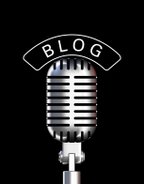





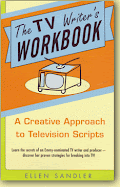



.png)


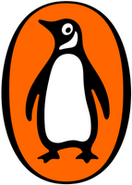
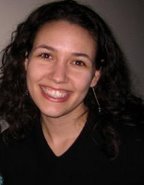
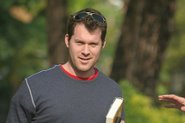

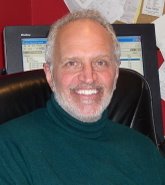
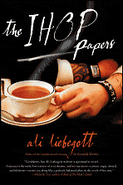
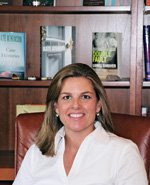
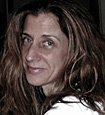
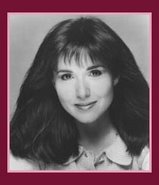
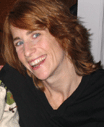


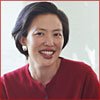


No comments:
Post a Comment